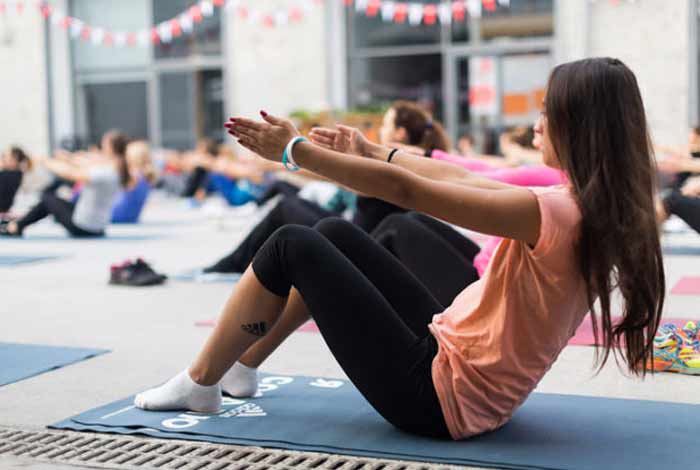
Sleep is a condition of body and mind in which your consciousness is partially altered. It is extremely important for the body and mind to function properly. If you do not get enough sleep, you become tired and irritated. Insomnia is a condition in which you face trouble falling asleep, staying asleep and/or both. It can affect you for a short or long time. Most people have experienced insomnia at some point in their lives. Insomnia can be caused due to a number of factors like an underlying medical condition, stress, alcohol, substance and drug abuse, cigarette smoking, and even environmental factors.
Some common symptoms of insomnia are as follows:
- Irritability
- Daytime sleepiness
- Fatigue
- Forgetfulness
- Difficulty concentrating
There are a number of ways with which you can effectively manage insomnia and get a sound sleep. Cognitive behavioral therapy and medicines can be used to treat insomnia. Besides, there are several home remedies as well that can help you in getting rid of this
Here we present 29 tried and tested home remedies that could help you in having a sound sleep:
1. Warm Milk:
Warm milk is one of the most effective home remedies for insomnia. It has been linked to induce the secretion of serotonin, a neurochemical found in the brain with relaxation properties. Milk induces a psychological feeling of wellness and comfort, which helps a person to feel relaxed and sleepy.
How to use it:
- Mix ¼ teaspoon of cinnamon powder with warm milk, and drink it an hour before you go to the bed.
- Add 1 teaspoon of honey to a glass of warm milk, and drink it before lying on the bed.
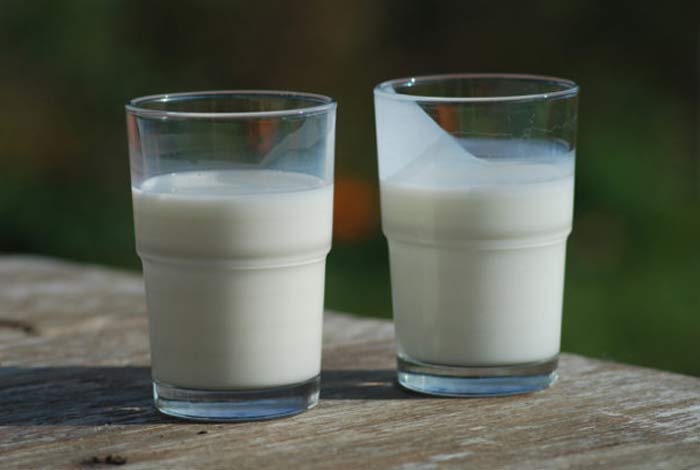
2. Anise Seeds, Warm Milk and Honey:
Anise seeds act as a natural sleep-inducing agent by relaxing the nervous system. It contains anethole, which helps decrease motor activity, and has sleep-inducing properties.
How to use it:
- Add 1 teaspoon of anise seeds to 2 glasses of water.
- Mix them well and heat it for nearly 15 minutes.
- Strain the mixture, and add sufficient amounts of honey and hot milk to it.
- Take this mixture twice a day for as long as needed.
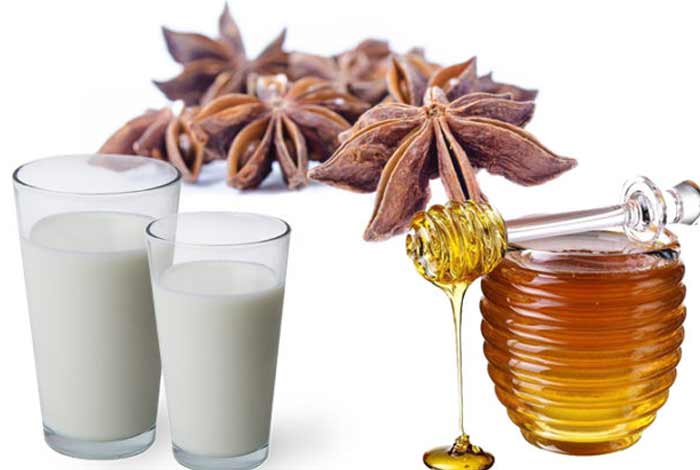
3. Chamomile, Cinnamon and Honey:
Chamomile has a reputation of being one of the most effective sleep-inducing herbs. A compound, apigenin, found in chamomile is responsible for its sedative effect.
How to use it:
- Add 1 teaspoon of chamomile herb into a pot containing water, and boil.
- Keep on stirring for a few minutes and then strain it.
- Add a pinch of cinnamon and some honey to the mixture.
- Have this tea twice during the daytime, and once before bedtime.

4. Valerian and Nutmeg:
Roots of valerian plant have been known to possess sedative properties. It works by increasing the concentration of gamma-aminobutyric acid (GABA) found in brain, which is known to induce deep sleep.
How to use it:
- Add ½ teaspoon of grated valerian root into hot water and allow it to steep for 15 minutes.
- Strain this mixture and drink it occasionally.
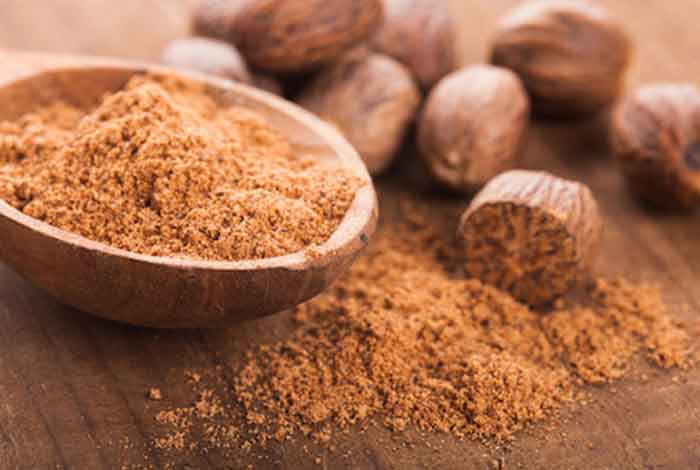
5. Apple Cider Vinegar:
Apple cider vinegar contains amino acids like tryptophan that help in relaxing your body. Using honey with apple cider vinegar helps in maintaining proper sleep-wake cycles.
How to use it:
- Take 2 teaspoons of apple cider vinegar and honey.
- Mix it well with warm water.
- Consume this mixture just before going to bed.

6. Cumin Seeds:
Cumin seeds help in inducing sleep as they are known to possess tranquilizing properties. It is known to contain high amounts of melatonin, which is responsible for maintaining a healthy sleep-wake cycle.
How to use it:
- Mash a ripe banana.
- Add 1 teaspoon of cumin powder to it and mix them well.
- Take this mixture before going to bed.
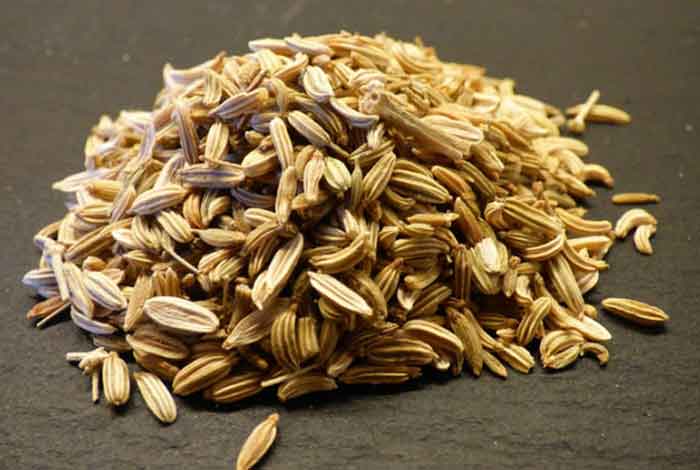
7. Nutmeg:
Nutmeg is also used as a home remedy to promote sleep. It contains myristicin, which has a strong sedative action, thus helps promote sleep.
How to use it:
- Take 1/8 teaspoon of nutmeg powder and mix it with a glass of warm milk.
- Drink this mixture before bedtime.
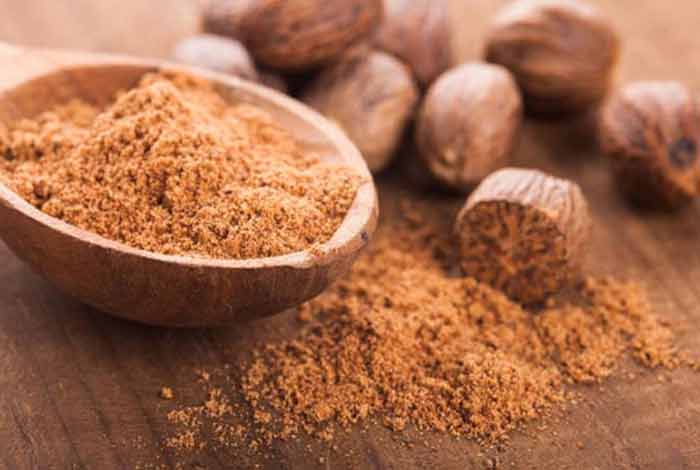
8. Almonds and Almond Oil:
Almonds and almond oil are used to treat the symptoms of insomnia as it contains tryptophan and magnesium that help relax the muscles.
How to use it:
Almonds:
- Eat almonds throughout the day as a snack.
Almond oil
- Use pure almond oil to massage your scalp and forehead every night before going to sleep.
- Then, massage your fingertips for 15 to 20 minutes.

9. Bananas:
Eating banana can help you manage the symptoms of insomnia, since it is a rich source of tryptophan. This amino acid helps you fall asleep by increasing the levels of serotonin in the brain. It also elevates the mood and increases appetite. Banana also contains potassium, iron and calcium that help you having a good sleep.
How to use it:
- Eat a banana regularly before going to bed.
- You can also eat it with some peanut butter and toast.

10. Honey:
Honey is known to have soothing properties. It calms the brain and promotes relaxation. It has natural sugar5s that increase your insulin levels, facilitating the entry of tryptophan into your brain.
How to use it:
- Add 2 teaspoons of honey to 1 glass of water.
- Mix it well and drink it after dinner.

11. Oatmeal and Flax Seeds:
Oats are a rich source of sleep-inducing compound, melatonin, which acts as a hormone in the body. Melatonin helps regulate sleep-wake cycle and promotes sound sleep.
How to use it:
- Sprinkle 2 tablespoons of flax seeds in oatmeal and mix them well.
- Make a paste of the mixture and consume it at night.

12. Fenugreek Juice:
Fenugreek juice contains an active compound, which inhibits monoamine oxidase-A (MAO-A) enzyme responsible for oxidizing serotonin. Therefore, consumption of fenugreek juice increases in the amount of serotonin in the body, which ultimately, enhances relaxation.
How to use it:
- Grind a few fenugreek leaves and extract about 2 teaspoons of its juice.
- Add honey to it and mix them well.
- Take this mixture every day before going to bed.
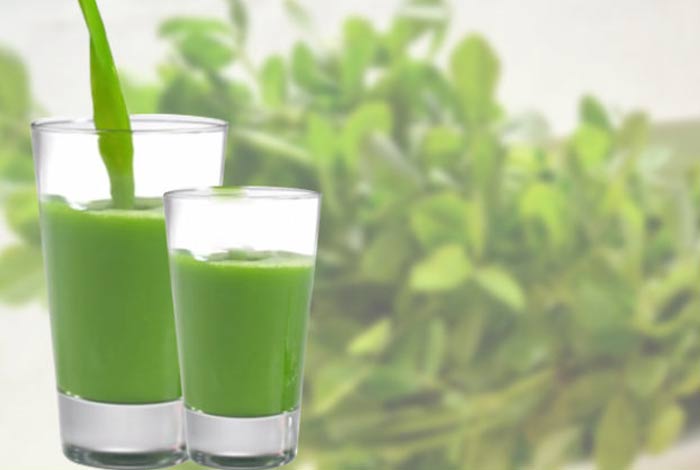
13. Saffron:
Saffron contains an active compound, called crocin, which is known to possess anti-anxiety properties. Therefore, it helps in reducing stress and relaxes the body.
How to use it:
- Add 2-3 strands of saffron into a cup of warm milk.
- Allow it to steep for a few minutes.
- Drink it before going to sleep.

14. Green Tea:
Green tea has L-theanine – an amino acid responsible for causing relaxation in the body. It also helps you to fight against stress.
How to use it:
- Put a green teabag into a cup.
- Add hot water to it.
- Let it steep for 5-7 minutes.
- Remove the teabag, and drink it around 5 hours before going to bed.

15. Music Therapy:
Music is known to reduce stress levels and helps you relax. It is also known to improve sleep quality and reduces heart rate and blood pressure. It boosts the secretion of endogenous opioids and oxytocin hormone – a natural stress buster and painkiller. Besides, music is found to activate those areas of brain that are responsible for pleasure and reward.
How to use it:
Listen to your favorite music for about 45-50 minutes before going to bed. However, the music should be slow, steady and soft, and not jazz or classical.

16. Lavender Oil:
Lavender oil is known for centuries to possess anti-anxiety, mood stabilizing, sedative and analgesic properties due to the presence of linalool, linalyl acetate and camphor in it. It is for this reason, it is employed in aromatherapy. By decreasing the level of stress, it allows you to have a better quality sleep.
How to use it:
- Take a few drops of lavender oil in your palm.
- Massage it gently in your temples thoroughly before going to bed.
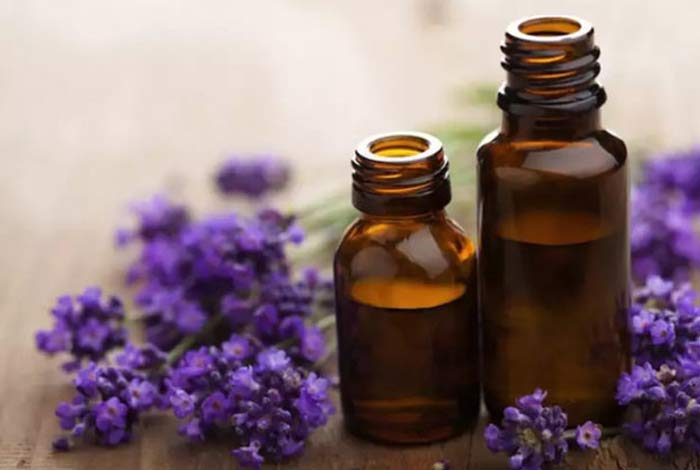
17. Hot Shower or Bath:
Hydrotherapy involves the use of water to ease discomfort and promote wellbeing. Warm water helps soothe tensed muscles, reduce stress and promote relaxation. Heat opens up the blood vessels and improves blood circulation.
How to use it:
Take a hot bath for about 2 hours before going to bed. For better results, add 2-3 cups of Epsom salt or soothing essential oils like lemon balm, rosemary, lavender and chamomile into your bathing water.

18. Lemon Balm:
Lemon balm is a plant belonging to the mint family, and is known as “calming herb.” It contains eugenol, which is known to have calming effect on the mind and body. Rosmarinic acid, found in lemon balm extracts, increases GABA in the brain, which is responsible for producing a soothing effect. It elevates mood as well as promotes relaxation and calmness.
How to use it:
- Take 2 tablespoons of lemon balm and 2 teaspoons of dried chamomile flowers in a pot.
- Pour 1 cup of boiling water into the pot.
- Allow it to steep for about 5 minutes.
- Strain it, and drink this tea 30-45 minutes before going to bed.
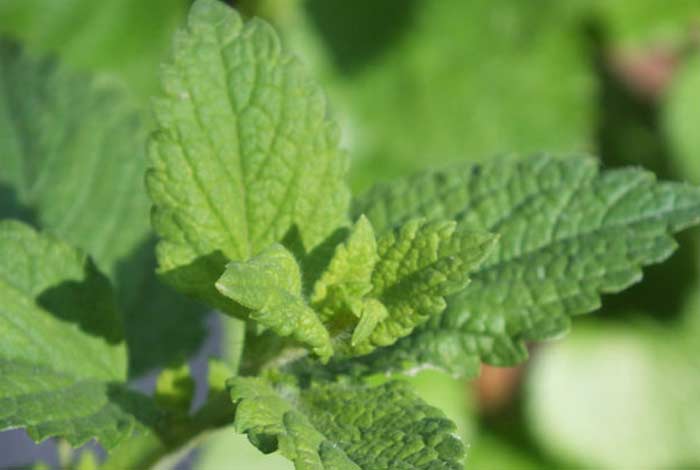
19. Kava Kava:
Kava kava is a traditional herb that is used to manage a number of conditions, such as epilepsy, migraines, ADHD, depression and even insomnia. It is known to possess sedative and calming properties that help in improving the quality of sleep. It helps you fight against fatigue and exhaustion, and known to induce good sleep.
How to use it:
- Add 1 teaspoon of kava kava powder in a glass of warm water.
- Allow it to stand for about 15 minutes.
- Drink this tea before bedtime while stirring it occasionally.

20. Catnip:
Catnip is an herb containing nepetalactone, which possesses mild sedative property and helps in relaxing the nerves. It also promotes good-quality sleep.
How to use it:
- Take 1 to 2 teaspoons of dried catnip, or 3 to 4 teaspoons of fresh catnip into a mug.
- Pour some boiling water over this herb and allow it too steep for about 10 minutes.
- Add honey to this if you like, and drink this tea 30 minutes before bedtime.

21. Hops:
Hops is a plant that has anxiolytic activity due to the presence of a component that modulates the action of GABA in the brain. The helps in developing a calming effect in the body.
How to use it:
- Place 2 tablespoons of dried hops into a glass jar.
- Pour 4 cups of boiling water into it.
- Allow it to steep for nearly 5 hours to overnight.
- Strain the tea.
- Reheat or chill the mixture before drinking, and consume it about 30-45 minutes before sleep.

22. Passion Flower:
Also, popular by the name “spiritual herb,” passion flower is considered as one of the most effective home remedies for treating insomnia and other sleep disorders. Possessing anti-anxiety properties, it acts by altering the levels of GABA in the brain, which produces relaxing effect on the mind and body.
How to use it:
- Put 2 teaspoons of dried passion flower in a cup.
- Pour 1 cup of boiling water over it; cover it and allow it too steep for a few minutes.
- Strain the tea and drink it twice or thrice in a day.

23. St. John’s Wort:
This herb is rapidly gaining recognition for its medicinal properties. It is known to help insomniacs in getting proper sleep by increasing the levels of calming hormones in the brain, viz., serotonin, dopamine and norepinephrine.
How to use it:
- Place 2 teaspoons of dried St. John’s Wort into a pot.
- Pour boiling water into this pot.
- Allow it to steep for 5 to 10 minutes.
- Strain this tea and take it once a day; either in the morning or 30 to 45 minutes before going to bed.
Note: You can also simply consume ¼ teaspoon of tincture of St. John’s Wort twice or thrice a day.

24. Sandalwood:
Sandalwood is rich in essential oils that help in calming the nerves and falling asleep. The soothing and heavenly fragrance of sandalwood takes away all your fatigue, anxiety and stress, and provides a feeling of bliss and calmness. The relaxed feeling is promoted by two active ingredients, i.e., alpha-santalol and beta-santalol that help in calming the central nervous system (CNS).
How to use it:
- Take a stone slab and rub sandalwood onto it.
- Add water to make a thick paste.
- Apply this paste to your forehead and temples before going to sleep.
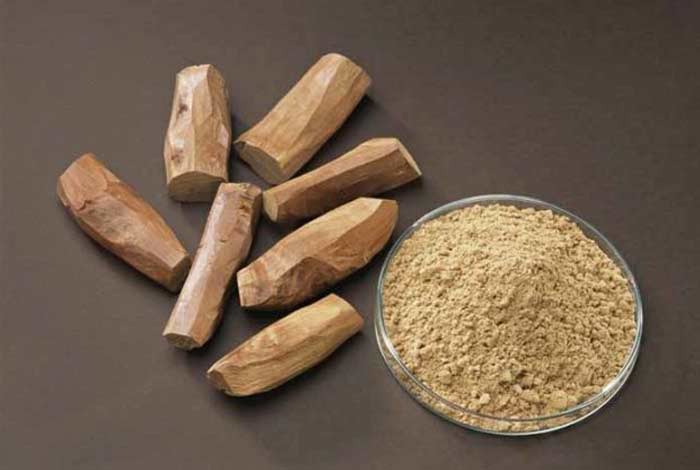
25. Lettuce Seeds:
Lactucarium, a sleep-inducing chemical found in lettuce seeds, helps in having a sound sleep.
It promotes a feeling of calmness in the body and allows a person to fall asleep quickly.
How to use it:
- Boil 1 teaspoon of lettuce seeds in ½ liter of water
- Drink this water every night before bedtime.

26. Curd:
Curd is known for its cooling and soothing effect. It helps you relax and promotes sound sleep.
How to use it:
- Put 2 or 3 tablespoons of curd in your palm.
- Massage it directly onto your forehead and leave it for a while.
- Wash it off with lukewarm water.
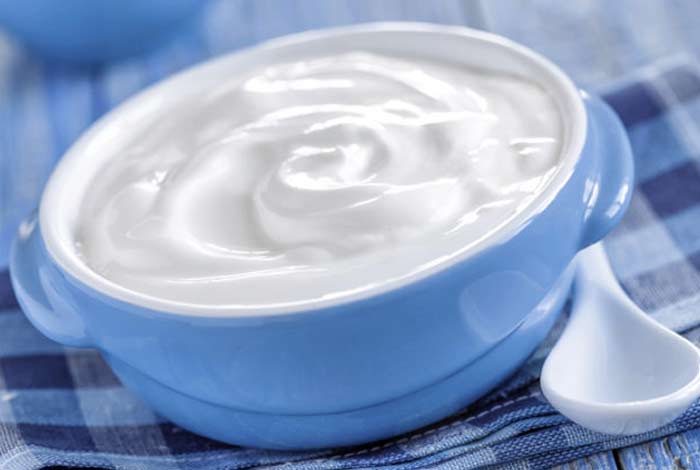
27. Bottle Gourd or Calabash:
Bottle gourd is known to prevent insomnia and help you in having a sound sleep. It is also beneficial in curing a number of other ailments like epilepsy, diabetes, digestive problems and heart diseases.
How to use it:
- Mix 1 teaspoon of bottle gourd juice with a teaspoon of sesame oil.
- Massage this mixture into your scalp before going to bed.

28. Lavender:
This herb is known to possess stress-busting and sedative activity due to the presence of compounds like linalool, camphor and linalyl acetate. These constituents relax your mind and help relieve stress and anxiety.
How to use it:
- Boil 1 cup of water and add dried lavender to it.
- Allow this herb to steep in boiling water for about 15 minutes.
- Filter the tea and drink it thrice a day.
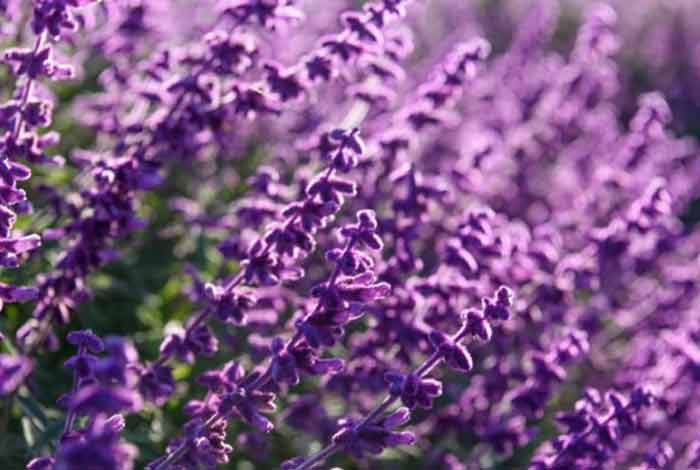
29. Exercise and Diet:
Physical activity makes the body tired and easily makes you fall asleep. It also allows you to stay more attentive and alert during the day. Exercise helps in boosting your mental and physical wellbeing. Some of the exercises that can be done to improve sleep quality are:
Yoga:
There are a number of benefits associated with yoga. Yoga can help you in improving physical strength and flexibility, mental focus and breathing, and decreases stress. Recent study indicates the usefulness of yoga in managing insomnia as well. It is found that regular yoga improves several aspects of sleep like total sleep and wake time, sleep onset latency, sleep efficiency, and wake time after sleep onset. Some of the yoga poses that can be practiced to improve sleep quality are as follows:
- Big Toe Pose (Padangusthasana)
- Bridge Pose (Setu Bandha Sarvangasana)
- Cat Pose (Marjaryasana)
- Corpse Pose (Shavasana)
- Cow Pose (Bitilasana)
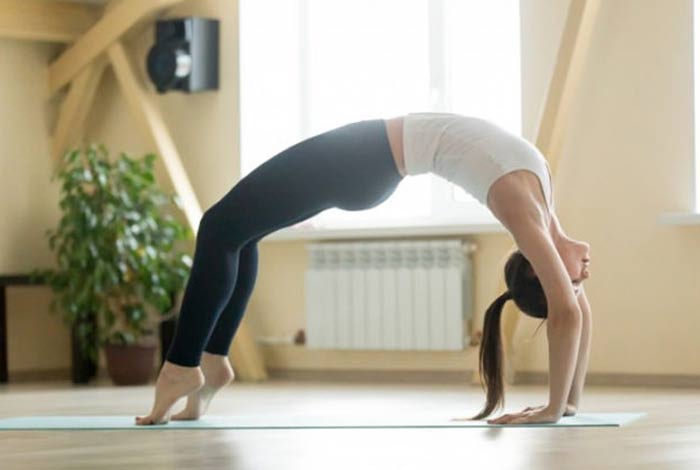
Body-Weight Exercise:
When you exercise, your body temperature increases and then decreases when you rest. This helps induce sleep. A few sit-ups or crunches, and/or leg raises can be done before bedtime to make you drowsy. However, you should not indulge in anything that could make your heart to race too much just before bed as this could induce an opposite effect by keeping you more awake.

Breathing Exercises:
Breathing exercises can help you in relaxing your mind and having a sound sleep. You can lie down in your bed or sit up straight, so as to keep the spine straight. Thereafter, start taking deep, slow and sustained breaths that start from the bottom of your diaphragm. Try concentrating on your breath and keep other thoughts away.
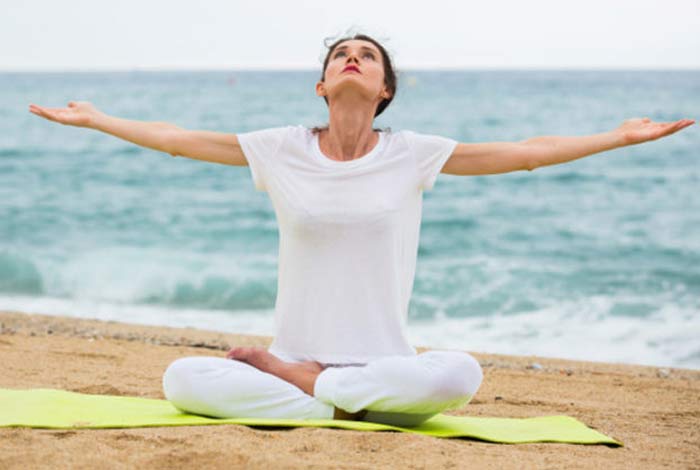
Visualization Exercise:
Visualization exercises are used to help you fall asleep quickly by slowing down your brain. You can imagine that you are clearing your thoughts like you declutter your workstation. Counting to 100 to distract your mind can be another option. One can also close his/her eyes and imagine being in a relaxed and idyllic location. Stay in that moment and you will slowly drift off to sleep.
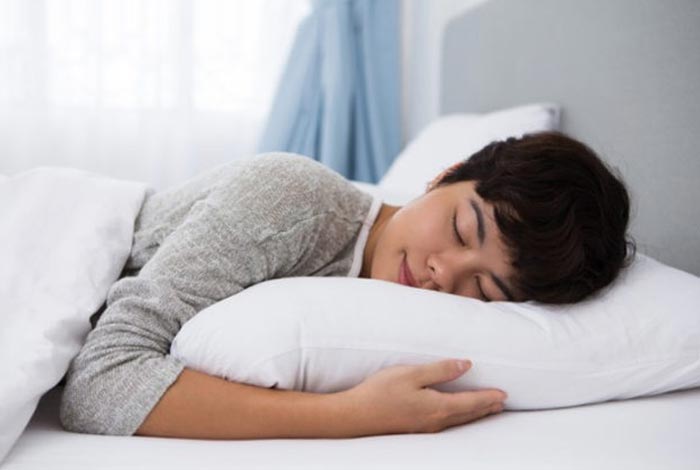
Meditation:
Once you start meditating just before bedtime, your body would begin to recognize it as a cue for falling asleep. Meditation can help you relax your mind and body. Remove all the stimuli from your bedroom, switch off the lights and sit in the bed while keeping your spine straight. Close your eyes and meditate for a while. Avoid meditation practices that stimulate your mind. You can also meditate about an hour before going to bed.
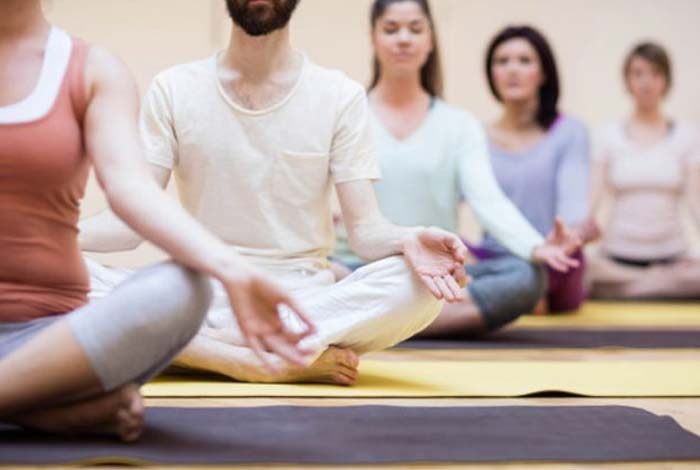
Stretches:
Stretching helps you release your most stressed joints, and makes you drowsy. You can stretch your hips and back by lying on the bed while making an arch. Butterfly stretches can also be performed for better outcomes.

Tai chi:
Tai chi, a form of Chinese martial art, has been found to be as effective as cognitive behavioral therapy (CBT) sessions for insomnia. Consisting of slow moves, it holds a meditative component as well. It can be considered as a moving meditation technique. It is known to improve sleep quality in people with insomnia.
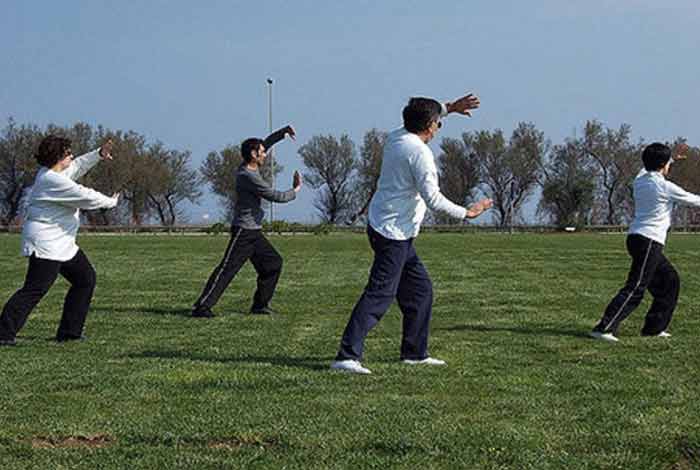
Pilates:
Pilates is a form of exercise, which utilizes special an apparatus to improve your physical strength, flexibility and posture. There are a few easy Pilates rolling and unrolling exercises like rollback, spine stretch, wall roll down and pelvic curl that you can try before going to bed for a better-quality sleep. For better outcomes, you can even use a specialized Pilates bed. It is claimed to be one of the most ergonomic and healthful beds for sleeping.
